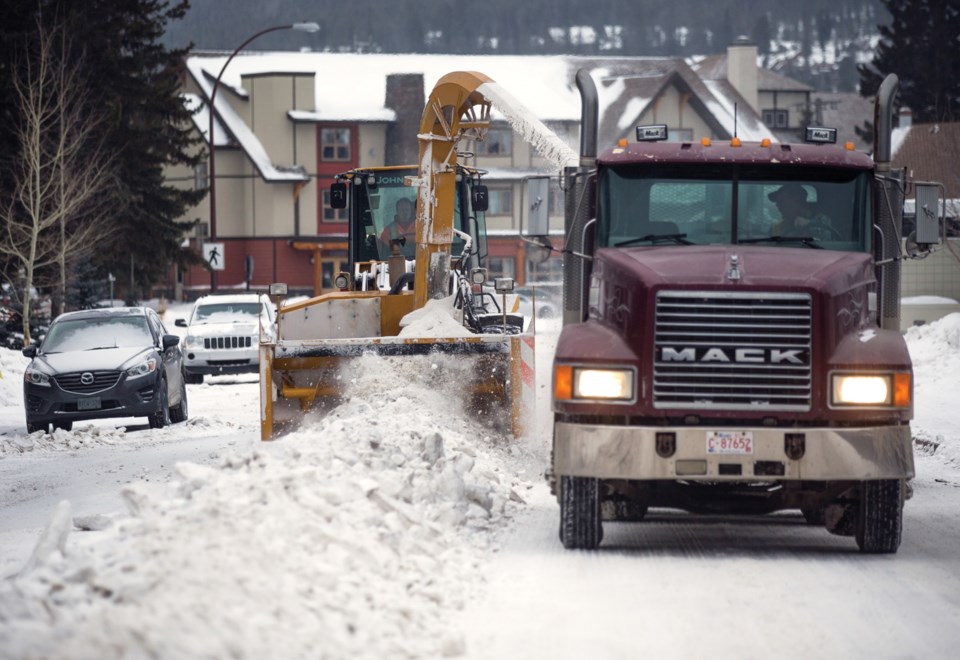BANFF – The Town of Banff is looking at ways to do a better job of clearing roads of snow and ice during severe weather.
Based on advice from the streets department, council made changes to its snow and ice management policy, which gives more flexibility to the priority plowing schedule and now allows the use of rock salt, or alternative products.
“I do believe that probably a lot of frustration over the last few years with the changes in weather is that they’ve had this policy that they have to adhere to,” said Mayor Karen Sorensen.
“I think these policy changes allow the Streets crew to be solution-driven based on what’s happening in that moment, at that time, with the weather and what’s expected next.”
With the changes, the Streets department will now be able to reset the priority clearing schedule before all zones have been completed during back-to-back storms.
Previously, due to the policy, crews would have to shift back to clearing the main arterial roads and hills before completing residential streets.
In a sustained snowstorm, crews can now take passes through secondary zones, such as residential roads, to ensure snow accumulations are not too great.
“One or two passes with a plow/sander could help accessibility for both the general public and, if needed, emergency vehicles,” said Marc Breau, manager of the Town’s Streets department.
The Streets department also sought more flexibility on the use of certain products, including rock salt, to increase road traction under certain weather conditions, such as early winter freezing rain followed by snow.
Breau said these instances would be done in a controlled, measured approach, given the potential effects to the environment.
“The Streets Department is seeking the flexibility to decide if an extraordinary road treatment is necessary, the best time to treat and what mixtures to utilize,” he said.
Councillor Peter Poole expressed concern about the environmental effects of salt going into the Bow River, noting he would like this policy reviewed in two years after more information on the issue is available.
“I’d like to know what happens when you release a bunch of salt on the road, in this case sodium chloride, and how much gets into the river, whether that’s a lot of a little bit,” he said.
“By providing you this authority that you want, would that be better or worse of no different for the river, or we just don’t know at this point.”
Breau said he would likely make a request to council at service review to hire a firm to do a detailed study on what the stormwater system discharges into the Bow River.
“It’s not just snow and ice. It’s everything,” he said.
Breau said snow and ice operations vary greatly from year to year.
“Each winter, weather events require different service delivery responses based on amount of snow, temperature and short and long-term weather forecasts,” he said.
“The major factors that impact snow maintenance operations during the course of the season include temperature and snow accumulation.”

